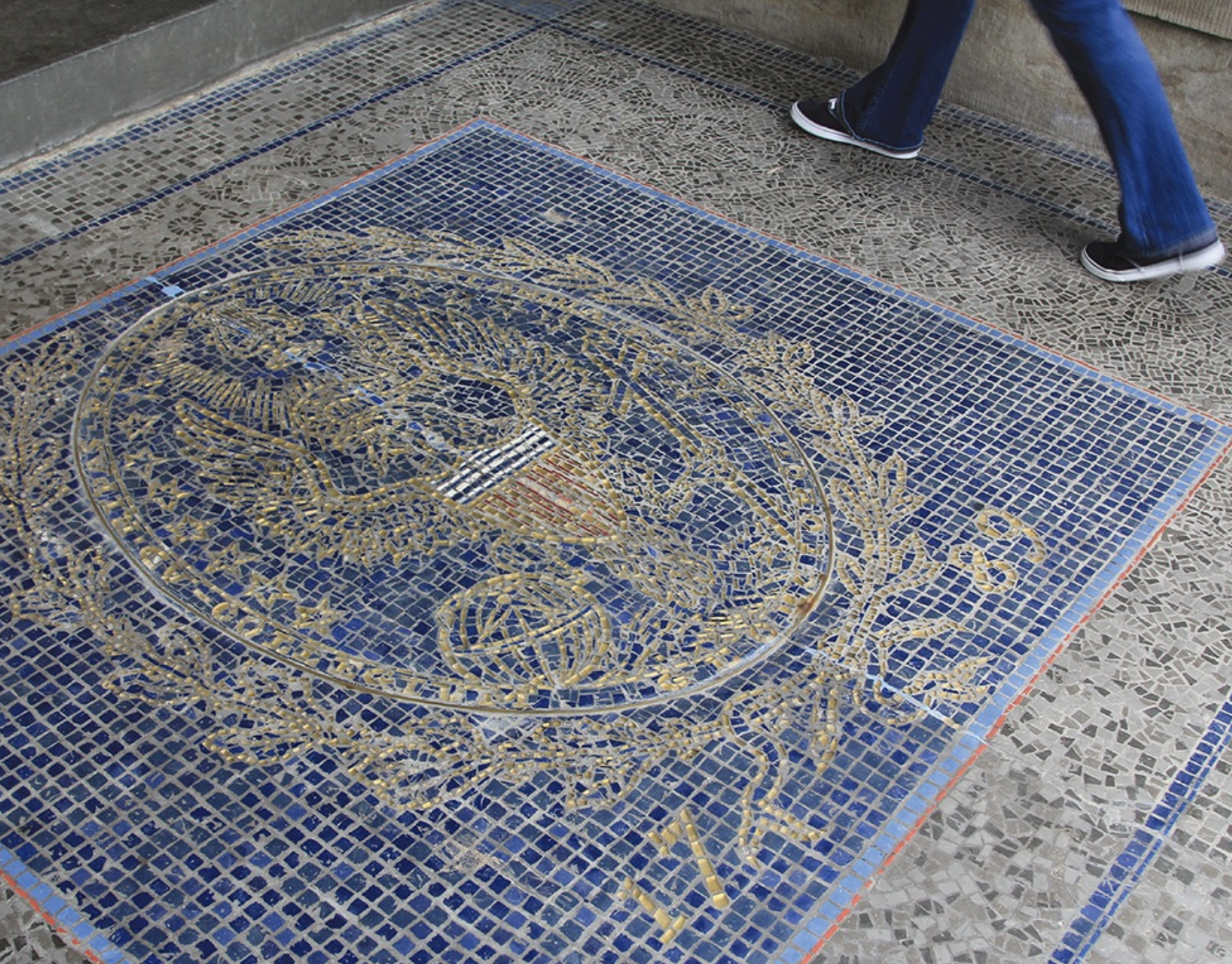The Georgetown University Student Association (GUSA) passed two bills regarding cannabis conduct violations and access to residential halls at a Sept. 7 meeting.
In a unanimous vote, the GUSA Senate passed legislation requesting that the Office of Student Conduct be transparent about sanctions for cannabis possession and amend regulations to make them more in line with alcohol use. The senate also unanimously passed a bill urging the Office of Residential Living and Student Affairs to expand GoCard access to the newly renovated lobby of Byrnes Hall to students who live off-campus, which senators previously advocated for at GUSA’s summer meeting.

Senator Cameran Lane (CAS ’28), who introduced the cannabis bill alongside three other senators, said the current sanctioning system for cannabis use and possession used by the Office of Student Conduct is disproportionate compared to alcohol violations.
“What this is, is recognizing the discrepancy between alcohol violations and marijuana violations on campus,” Lane said during the meeting. “There is a tiered system, so if any of you were to go out and be caught drunk or having alcohol in your dorms versus if you were to get a violation for some type of cannabis infringement, the sanctions are disproportionate.”
The cannabis bill calls on the Office of Student Conduct to handle first-time cannabis use and possession in the same manner as first-time alcohol sanctions for students who are over the age of 21. While cannabis use is permitted in D.C. for individuals over 21, it remains prohibited under the university’s Code of Conduct.
The senate’s bill advocating for expanded GoCard access to Byrnes Hall built on senators’ advocacy over the summer.
Senator Asha Gudipaty (CAS ’27), who introduced the bill alongside three other senators, said the bill seeks to expand equitable access to campus facilities for all students.
“This is about expanding GoCard access to the new Henle for seniors that live off-campus because there’s a lot of non-residential amenities similar to the HFSC or Arrupe, and it’s really unfair that they don’t get GoCard access,” Gudipaty said during the meeting.
Saahil Rao (SFS ’27), the speaker of the senate, said he and Senator Meriam Ahmad (SFS ’26) will work on a petition if Residential Living does not work to expand Byrnes Hall access.
“Meriam and I are talking about organizing some kind of campaign from off-campus seniors,” Rao said during the meeting.
Full Disclosure: Saahil Rao currently serves as an opinion columnist for The Hoya.
GUSA’s executive also addressed its ongoing projects at the meeting.
GUSA President Ethan Henshaw (CAS ’26) said students can use newly created outdoor spaces in the Southwest Quadrangle.
“If you look at Southwest Quad, you’ll see that there’s mulched out areas and poles right now, you can bring your own hammock there,” Henshaw said. “We have a checkout system arranged with HFSC. So they’ve agreed that we’ll store 12 hammocks in there.”
Henshaw added that GUSA has received approval from the university to install foosball tables in some of the dorms on campus.
“We received approval from residential living to put them in four separate lobbies, as well as hopefully other game tables,” Henshaw said.
The senate also unanimously confirmed Amelia Snyder (SOH ’28) to serve as the outreach director, responsible for strengthening the relationship between the student body and GUSA, and Ignacio Sandoval Loaiza (CAS ’28) to serve as the director of labor and financial accessibility, responsible for advocating for students on issues related to affordability and employment, within GUSA’s executive branch.
Loaiza said he hopes to prioritize implementation when working on policy.
“Implementation is really big for me and just kind of considering things that maybe aren’t always the most apparent when writing policy, like really specific niches,” Loaiza said at the meeting.
Snyder, a former senator, said she looks forward to holding effective town hall meetings throughout the semester to allow students to engage with GUSA.
“We’ve had some very successful town halls last year that I hope to capitalize on, keep those contacts going,” Snyder said at the meeting. “I’m also hoping to do a more stratified effect of town halls so that we reach more people by having more specific town halls, so we get the most efficient engagement.”